Reviewer of the Year
Beginning in 2022, our editors will select a few of our outstanding referees each year to be featured as Reviewer of the Year.
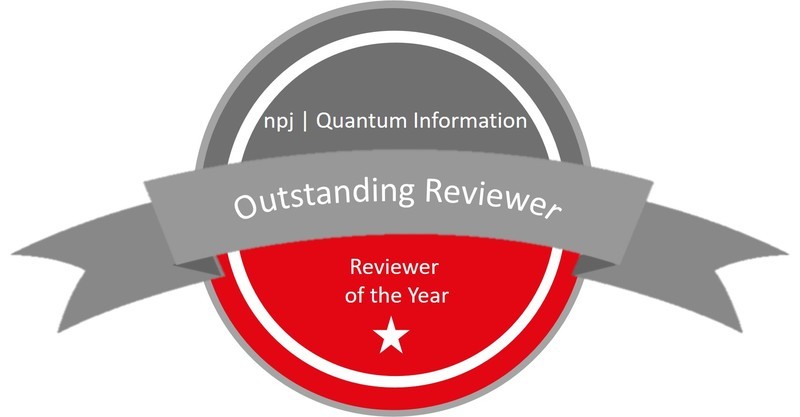
Our featured reviewers are those who have:
made a significant and positive contribution to the peer review process, regardless of whether the paper was eventually accepted by the journal;
taken both a broad and detailed view of the paper;
demonstrated professionalism and compassion in their reviews; and
provided comments that truly help the authors to improve their work.
We must note that, while it is our opinion that these referees have provided exceptional reviews, many of our referees meet the above criteria and we regret that we cannot recognize each of them publicly here. We are equally grateful to all of the individuals who agree to review for npj Quantum Information, thereby helping to strengthen the scientific record. We hope that by highlighting a few of our most outstanding referees, we can bring attention to the valuable contributions of peer reviewers to the scientific process.
2023
Svend-Age Biehs
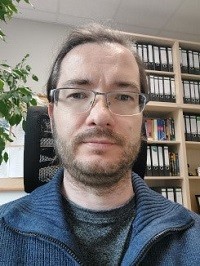 Svend-Age Biehs holds the position of associate professor at the Institute of Physics, University of Oldenburg. He earned his PhD from the same institution, having completed his studies there. Following this, he served as a postdoctoral researcher for over two years at the Institut d’Optique in Palaiseau, France, supported by a grant from the Leopoldina (German National Academy of Sciences). His research interests encompass various facets of nanoscale heat radiation, near-field infrared imaging, topological and non-reciprocal plasmonic systems, as well as energy, heat transfer, and entanglement in quantum systems. His contributions to the field of nanoscale radiative heat transfer were recognized with the Gustav-Hertz Prize from the German Physical Society in 2019.
Svend-Age Biehs holds the position of associate professor at the Institute of Physics, University of Oldenburg. He earned his PhD from the same institution, having completed his studies there. Following this, he served as a postdoctoral researcher for over two years at the Institut d’Optique in Palaiseau, France, supported by a grant from the Leopoldina (German National Academy of Sciences). His research interests encompass various facets of nanoscale heat radiation, near-field infrared imaging, topological and non-reciprocal plasmonic systems, as well as energy, heat transfer, and entanglement in quantum systems. His contributions to the field of nanoscale radiative heat transfer were recognized with the Gustav-Hertz Prize from the German Physical Society in 2019.
Regarding peer-review for npj Quantum Information, Dr. Biehs says, “high-quality peer reviews play a crucial role in maintaining the integrity of scientific publications, especially in an era marked by a significant surge in the number of published works. As a reviewer, I strive to provide clear, thorough, and constructive feedback, pinpointing both the strengths and weaknesses of the manuscript under review. It brings me great satisfaction when my feedback proves beneficial to the authors.”
Personal Website: https://uol.de/condmat/mitarbeiter/biehs
Iris Cong
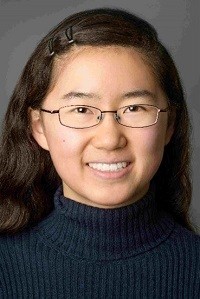 Iris Cong completed her Ph.D. degree in Physics at Harvard University in 2022. During her graduate study in Professor Mikhail Lukin’s group, she discovered novel machine-learning-based applications and hardware-efficient error correction methods for quantum computers. Her research has previously been recognized with the Hertz Fellowship, the Paul and Daisy Soros Fellowship, and the National Defense Science and Engineering Graduate Fellowship. Further information is available on her website: https://iriscong.com.
Iris Cong completed her Ph.D. degree in Physics at Harvard University in 2022. During her graduate study in Professor Mikhail Lukin’s group, she discovered novel machine-learning-based applications and hardware-efficient error correction methods for quantum computers. Her research has previously been recognized with the Hertz Fellowship, the Paul and Daisy Soros Fellowship, and the National Defense Science and Engineering Graduate Fellowship. Further information is available on her website: https://iriscong.com.
Recently, Dr. Cong has become increasingly passionate about the potential for using emerging technologies such as quantum devices in the field of medicine. This fall, she will start medical school with the goal of becoming a practicing physician-scientist. She hopes to subsequently combine her quantum information expertise with her medical practice to advance patient care, potentially by developing novel diagnostic tools or personalized therapies.
When asked about peer review, Dr. Cong says, “Peer review is invaluable to establishing the integrity and correctness of published results, advancing the quality of academic research, and ensuring that future works are built upon solid foundations. Personally, I have benefitted significantly from the feedback of many reviewers who challenged and helped me to take my work another step further and broaden its impact; as a reviewer, I hope to give back and help others in a similar way. I am greatly honored to be selected by npj Quantum Information as a Reviewer of the Year.”
Bill Munro
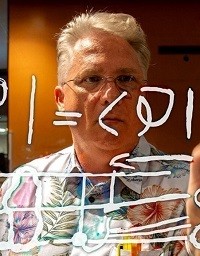 Bill Munro is a Professor at the Okinawa Institute of Science and Technology. Previously he was the director of NTT’s Center for Theoretical Quantum Physics and one of their senior distinguished scientists. His research focus in Quantum Science ranges from foundational issues of quantum theory through to applications of quantum technology and designs for their practical realization. In particular, his Quantum Engineering and Design (Q.E.D) research unit explores the design and system engineering of quantum technologies with the aim to provide a path from the theoretical concepts to its real-world implementation and exportation. Bill is also a Fellow of the American Physical Society, Optica and the Institute of Physics.
Bill Munro is a Professor at the Okinawa Institute of Science and Technology. Previously he was the director of NTT’s Center for Theoretical Quantum Physics and one of their senior distinguished scientists. His research focus in Quantum Science ranges from foundational issues of quantum theory through to applications of quantum technology and designs for their practical realization. In particular, his Quantum Engineering and Design (Q.E.D) research unit explores the design and system engineering of quantum technologies with the aim to provide a path from the theoretical concepts to its real-world implementation and exportation. Bill is also a Fellow of the American Physical Society, Optica and the Institute of Physics.
Regarding why he reviews, Bill says that “peer review is a fundamental part of the scientific progress. It helps ensure the quality and integrity of published research. Further one gets to see the newest work coming out of our field.”
Sen Yang
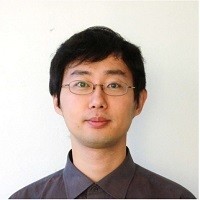 Sen Yang is an associate professor in the department of physics, the Hong Kong University of Science and Technology. He got his B.S. from Tsinghua University and Ph.D. in University of California, San Diego. His research focuses on quantum optics and quantum information science in solid state systems. His group has done several breakthrough works, includes: the first direct proof of Bose Einstein condensation in 2D semiconductor; the quantum storage of single photon states into single nuclear spin which demonstrate the longest storage time optical quantum memory for quantum communications; versatile quantum sensors for quantum material research; novel direct laser writing material deposition method for chip fabrication.
Sen Yang is an associate professor in the department of physics, the Hong Kong University of Science and Technology. He got his B.S. from Tsinghua University and Ph.D. in University of California, San Diego. His research focuses on quantum optics and quantum information science in solid state systems. His group has done several breakthrough works, includes: the first direct proof of Bose Einstein condensation in 2D semiconductor; the quantum storage of single photon states into single nuclear spin which demonstrate the longest storage time optical quantum memory for quantum communications; versatile quantum sensors for quantum material research; novel direct laser writing material deposition method for chip fabrication.
https://diamond-physics.hkust.edu.hk/
email: phsyang@ust.hk.
Daniel J. Gauthier
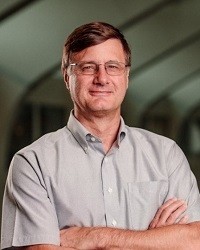 Daniel J. Gauthier is a Professor of Physics and Electrical and Computer Engineering at The Ohio State University beginning in 2016. He attended the University of Rochester, obtaining a Ph.D. in Optics in 1989, and was a Research Associate at the University of Oregon from 1989-1991. In 1991, he joined the faculty of Duke University, Durham, NC, as an Assistant Professor of Physics, was the Robert C. Richardson Professor from 2011- 2015, chair of the Duke Physics Department from 2005 – 2011, and interim chair in spring 2015. He is co-founder and lead developer at ResCon Technologies, LLC, and co-founder of Colorado Cryptography Development, Inc., DBA Verilock, Inc. His research interests include quantum communication, single-photon detection, nonlinear quantum optics, dynamics of networks, and reservoir computing. He is a Fellow of Optica and the American Physical Society.
Daniel J. Gauthier is a Professor of Physics and Electrical and Computer Engineering at The Ohio State University beginning in 2016. He attended the University of Rochester, obtaining a Ph.D. in Optics in 1989, and was a Research Associate at the University of Oregon from 1989-1991. In 1991, he joined the faculty of Duke University, Durham, NC, as an Assistant Professor of Physics, was the Robert C. Richardson Professor from 2011- 2015, chair of the Duke Physics Department from 2005 – 2011, and interim chair in spring 2015. He is co-founder and lead developer at ResCon Technologies, LLC, and co-founder of Colorado Cryptography Development, Inc., DBA Verilock, Inc. His research interests include quantum communication, single-photon detection, nonlinear quantum optics, dynamics of networks, and reservoir computing. He is a Fellow of Optica and the American Physical Society.
Regarding being a reviewer for npj Quantum Information, “The field of quantum information is growing rapidly, which leads to new ideas that are likely to be foundational results. As a reviewer, I try to keep the long-view: how can the manuscript be improved so that it still has an impact 100 years from now.”
Hoi-Kwong Lo
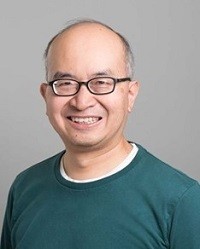 Hoi-Kwong Lo is a co-founder and CTO of Quantum Bridge Technologies, Inc. ("Quantum Bridge"). He is also a Professor of Physics and Electrical and Computing Engineering at the University of Toronto. He was awarded a B.A. in Mathematics at Cambridge University, UK in 1989 and a Ph.D. in Physics at Caltech in 1994. After getting his Ph.D., he worked at various major research institutions such as the Institute for Advanced Study, Princeton, USA, and industries such as Hewlett-Packard Labs, Bristol, UK, and MagiQ Technologies, Inc. New York, USA before joining the University of Toronto in 2002. He is a pioneer in quantum information and quantum cryptography. He is well-known for his contributions to quantum information, particularly the theory and experiments of quantum key distribution.
Hoi-Kwong Lo is a co-founder and CTO of Quantum Bridge Technologies, Inc. ("Quantum Bridge"). He is also a Professor of Physics and Electrical and Computing Engineering at the University of Toronto. He was awarded a B.A. in Mathematics at Cambridge University, UK in 1989 and a Ph.D. in Physics at Caltech in 1994. After getting his Ph.D., he worked at various major research institutions such as the Institute for Advanced Study, Princeton, USA, and industries such as Hewlett-Packard Labs, Bristol, UK, and MagiQ Technologies, Inc. New York, USA before joining the University of Toronto in 2002. He is a pioneer in quantum information and quantum cryptography. He is well-known for his contributions to quantum information, particularly the theory and experiments of quantum key distribution.
He is a Fellow of the American Physical Society (APS), Optica Fellow, and IEEE Fellow. He has won various awards including the 2023 IEEE Quantum Electronics Award and the 2022 CAP-INO Medal for Outstanding Achievement in Applied Photonics.
Further information about Hoi-Kwong Lo can be found at the following websites:
https://www.linkedin.com/in/hoi-kwong-lo-a8b14140/
https://scholar.google.ca/citations?user=sJkQETYAAAAJ&hl=en
Quntao Zhuang
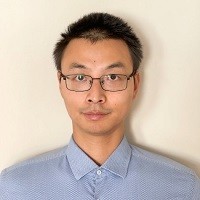 Quntao Zhuang is an Assistant Professor of Electrical and Computer Engineering and Physics and Astronomy at University of Southern California. He received his B.A. in physics from Peking University in 2013 and Ph.D. in physics in 2018 from Massachusetts Institute of Technology. Before coming to USC, he was an Assistant Professor in Electrical and Computer Engineering and Optical Sciences at University of Arizona. Dr. Zhuang received the NSF CAREER award in 2022 and DARPA Young Faculty Award in 2020, which is selected as DARPA Director’s award in 2022.
Quntao Zhuang is an Assistant Professor of Electrical and Computer Engineering and Physics and Astronomy at University of Southern California. He received his B.A. in physics from Peking University in 2013 and Ph.D. in physics in 2018 from Massachusetts Institute of Technology. Before coming to USC, he was an Assistant Professor in Electrical and Computer Engineering and Optical Sciences at University of Arizona. Dr. Zhuang received the NSF CAREER award in 2022 and DARPA Young Faculty Award in 2020, which is selected as DARPA Director’s award in 2022.
Quntao’s research focuses on quantum sensing, quantum communication and quantum machine learning. More information about his group can be found at group website: https://sites.usc.edu/zhuang/
Sophia Economou
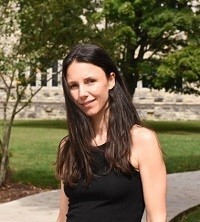 Sophia Economou is a Professor and the T. Marshall Hahn Chair in Physics at Virginia Tech. She is also the director of the Virginia Tech Center for Quantum Information Science and Engineering. She focuses on theoretical research in quantum information science, including quantum computing, quantum communications, and quantum simulation algorithms. In 2023 she was honored as an APS fellow.
Sophia Economou is a Professor and the T. Marshall Hahn Chair in Physics at Virginia Tech. She is also the director of the Virginia Tech Center for Quantum Information Science and Engineering. She focuses on theoretical research in quantum information science, including quantum computing, quantum communications, and quantum simulation algorithms. In 2023 she was honored as an APS fellow.
Twitter handle: @see_quantum
2022
Jeff Shapiro
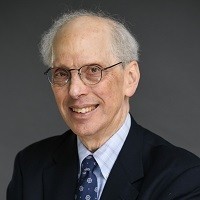 Professor Jeffrey H. Shapiro is the Julius A. Stratton Professor of Electrical Engineering at the Massachusetts Institute of Technology (MIT). He received the S.B., S.M., E.E., and Ph.D. degrees in Electrical Engineering from MIT in 1967, 1968, 1969, and 1970, respectively. Professor Shapiro’s doctoral research was a theoretical study of adaptive techniques for improved optical communication through atmospheric turbulence. From 1970 to 1973, he was a faculty member at Case Western Reserve University, and since 1973 he has been on the MIT faculty. From 1989 until 1999 Prof. Shapiro served as Associate Department Head of MIT’s Department of Electrical Engineering and Computer Science. From 2001 until 2011 he served as Director of the Research Laboratory of Electronics. From 2007 through 2011 Prof. Shapiro was Co-Director of the W.M. Keck Foundation Center for Extreme Quantum Information Theory (xQIT), and from 2008 through 2015, he was Co-Director of the NSF IGERT Program “Interdisciplinary Quantum Information Science and Engineering (iQuISE)”.
Professor Jeffrey H. Shapiro is the Julius A. Stratton Professor of Electrical Engineering at the Massachusetts Institute of Technology (MIT). He received the S.B., S.M., E.E., and Ph.D. degrees in Electrical Engineering from MIT in 1967, 1968, 1969, and 1970, respectively. Professor Shapiro’s doctoral research was a theoretical study of adaptive techniques for improved optical communication through atmospheric turbulence. From 1970 to 1973, he was a faculty member at Case Western Reserve University, and since 1973 he has been on the MIT faculty. From 1989 until 1999 Prof. Shapiro served as Associate Department Head of MIT’s Department of Electrical Engineering and Computer Science. From 2001 until 2011 he served as Director of the Research Laboratory of Electronics. From 2007 through 2011 Prof. Shapiro was Co-Director of the W.M. Keck Foundation Center for Extreme Quantum Information Theory (xQIT), and from 2008 through 2015, he was Co-Director of the NSF IGERT Program “Interdisciplinary Quantum Information Science and Engineering (iQuISE)”.
Dr. Shapiro’s research interests have centered on the application of communication theory to optical systems. He is best known for his work on the generation, detection, and application of squeezed-state light beams, but he has also published extensively in the areas of atmospheric optical communication, coherent laser radar, classical and quantum ghost imaging, photon-efficient and non-line-of-sight imaging. and quantum radar.
Dr. Shapiro is a Fellow of the Institute of Electrical and Electronics Engineers, Optica, the American Physical Society, the Institute of Physics, and SPIE. He has been an Associate Editor of the IEEE Transactions on Information Theory and the Journal of the Optical Society of America, and was the Principal Organizer of the Sixth International Conference on Quantum Communication, Measurement and Computing (QCMC’02). In 2008 Dr. Shapiro was co-recipient of the Quantum Electronics Award from the IEEE Lasers and Electro-Optics Society (now the IEEE Photonics Society), and he received the Quantum Communication Award for Theoretical Research from Tamagawa University.
Regarding why he reviews, Dr. Shapiro says “publication of research results is vital to advancing science and engineering by permitting the worldwide research community the access needed to build on those results. Moreover, peer review is essential to ensuring the quality of what gets published. I have always felt that if you publish you must review. During my career I have repeatedly benefitted from the reviews my papers have received. Sometimes these reviews cited relevant references of which I was unaware, or they caught content errors or crucial typos, or they identified explanations that were unclear and needed improvement. In those cases, when my revised manuscript was ultimately published, it was appreciably better than my initial version. Everyone, I think, gets a paper rejected from time to time. A well-done review that led to that rejection will, in my experience, provide valuable guidance regarding the research topic in question. Consequently, I have always strived to provide reviews that live up to the high standards of many of the reviews I have received, and I am proud that npj Quantum Information has recognized me as one of their Reviewers of the Year.”
Pauline Ollitrault
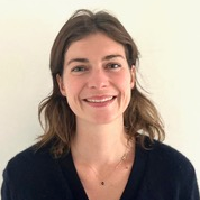 Pauline Ollitrault became a Staff Scientist at QC Ware Corp., France in 2022. Before that she worked at IBM Quantum, IBM Research – Zürich as a research staff member since 2021 after completing her PhD on the subject of quantum algorithms for quantum chemistry jointly between IBM Research and the chemistry department of ETHZ. Her research focuses on applications of quantum computers to chemistry problems such as electronic and vibrational structure calculations as well as quantum dynamics.
Pauline Ollitrault became a Staff Scientist at QC Ware Corp., France in 2022. Before that she worked at IBM Quantum, IBM Research – Zürich as a research staff member since 2021 after completing her PhD on the subject of quantum algorithms for quantum chemistry jointly between IBM Research and the chemistry department of ETHZ. Her research focuses on applications of quantum computers to chemistry problems such as electronic and vibrational structure calculations as well as quantum dynamics.
When asked about peer review, Dr. Ollitrault says, “Reviewing for npj Quantum Information has been a great opportunity for me to deeply learn about the latest advancement of quantum computing and quantum algorithms. Detailed and constructive peer reviews have always helped me improve my work and the quality of my papers. I write my reviews for npj Quantum Information in hopes of making such a positive impact.”
Yuan Su
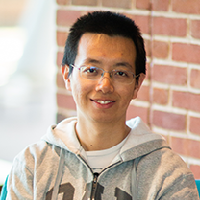 Yuan Su is a Senior Researcher at Microsoft Quantum. Previously, he was a Research Scientist at Google Quantum AI and a Postdoc Scholar at the California Institute of Technology. He studies the theoretical side of quantum simulation, with the goal of understanding and optimizing the performance of quantum algorithms for simulating quantum physics. Su obtained his doctorate degree in Computer Science from the University of Maryland. His academic adviser was Andrew Childs. Contributions from his thesis “Algorithms for Quantum Simulation: Design, Analysis, Implementation, and Application” were recognized by the 2020 Larry S. Davis Doctoral Dissertation Award. He is a recipient of the 2019 Google PhD Fellowship in quantum computing. You can follow him on Twitter @yuansu_umd and link to his personal website: http://yuansu.me/
Yuan Su is a Senior Researcher at Microsoft Quantum. Previously, he was a Research Scientist at Google Quantum AI and a Postdoc Scholar at the California Institute of Technology. He studies the theoretical side of quantum simulation, with the goal of understanding and optimizing the performance of quantum algorithms for simulating quantum physics. Su obtained his doctorate degree in Computer Science from the University of Maryland. His academic adviser was Andrew Childs. Contributions from his thesis “Algorithms for Quantum Simulation: Design, Analysis, Implementation, and Application” were recognized by the 2020 Larry S. Davis Doctoral Dissertation Award. He is a recipient of the 2019 Google PhD Fellowship in quantum computing. You can follow him on Twitter @yuansu_umd and link to his personal website: http://yuansu.me/
Regarding peer-review for npj Quantum Information, Dr. Su says, “npj Quantum Information has become one of the top journals publishing impactful research results on quantum information and computation. Serving as a reviewer for npj Quantum Information, I feel good about contributing back to the community and enjoy learning the latest research developments of our field which broadens my horizon.”
Luca Pezzè
 Luca Pezzè is a researcher at the National Institute of Optics of the Italian Research Council (INO-CNR) and European Laboratory of Nonlinear Spectroscopy (LENS) in Florence (Italy). He received his Master degree from the University of Padua (Italy) and his PhD in Physics from the University of Trento (Italy). He has worked at the Institut d’Optique, Palaiseau (France), and has been a long-term visitor at the Los Alamos National Laboratory (USA). His research interest mainly focuses on quantum metrology, where he has contributed to clarify the role of entanglement in enhancing the sensitivity of parameter estimation. He has also collaborated with several experimental groups on different platforms and subjects. He is currently applying quantum information ideas and methods to the study of many-body phenomena, such as quantum phase transitions, disorder and chaos.
Luca Pezzè is a researcher at the National Institute of Optics of the Italian Research Council (INO-CNR) and European Laboratory of Nonlinear Spectroscopy (LENS) in Florence (Italy). He received his Master degree from the University of Padua (Italy) and his PhD in Physics from the University of Trento (Italy). He has worked at the Institut d’Optique, Palaiseau (France), and has been a long-term visitor at the Los Alamos National Laboratory (USA). His research interest mainly focuses on quantum metrology, where he has contributed to clarify the role of entanglement in enhancing the sensitivity of parameter estimation. He has also collaborated with several experimental groups on different platforms and subjects. He is currently applying quantum information ideas and methods to the study of many-body phenomena, such as quantum phase transitions, disorder and chaos.
When asked about peer review, Dr. Pezzè says “npj Quantum Information is an emerging and highly-interdisciplinary journal that publishes cutting-edge research on quantum information science. Reviewing papers for the journal allows me to keep updated to the latest developments and high-quality research trends of the field. It also gives me the unique opportunity to interact with authors and contribute to manuscripts with constructive comments. I believe that peer review is vital to ensure quality and reliability of academic publications.”
Jiannis Pachos
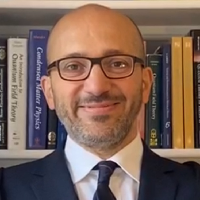 Jiannis K. Pachos is a Professor of Theoretical Physics at the University of Leeds. He studied physics at the University of Athens (Greece) and did his PhD at the University of Durham (UK). Then he did several postdocs, including MIT (USA), Max Planck Institute (Germany), Imperial College London and Cambridge University (UK) before he eventually moved to Leeds. Jiannis has been awarded the Royal Society University Research Fellowship between 2003 and 2011. He is mainly interested in geometrical and topological aspects of physics in quantum information, high energy and condensed matter. More info about him and his group: https://theory.leeds.ac.uk/jiannis-pachos/
Jiannis K. Pachos is a Professor of Theoretical Physics at the University of Leeds. He studied physics at the University of Athens (Greece) and did his PhD at the University of Durham (UK). Then he did several postdocs, including MIT (USA), Max Planck Institute (Germany), Imperial College London and Cambridge University (UK) before he eventually moved to Leeds. Jiannis has been awarded the Royal Society University Research Fellowship between 2003 and 2011. He is mainly interested in geometrical and topological aspects of physics in quantum information, high energy and condensed matter. More info about him and his group: https://theory.leeds.ac.uk/jiannis-pachos/
When asked about peer review, Dr. Pachos says “Peer review is a critical aspect of scientific progress as it helps to ensure the quality and integrity of published research. I believe that as a peer reviewer for npj Quantum Information, I contribute to the advancement of scientific knowledge by providing constructive feedback to authors, praising their novel achievements, identifying weaknesses in their work, and recommending ways to improve it. Peer review also allows me to stay current with the latest research in my field and to contribute to the scientific community by sharing my expertise.”
Nathalie De Leon
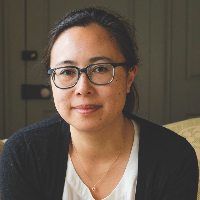 Nathalie de Leon is an associate professor in Electrical and Computer Engineering at Princeton University. Her group focuses on building quantum technologies with solid state defects and new material systems for superconducting qubits. She received the Air Force Office for Scientific Research Young Investigator Award in 2016, the Sloan Research Fellowship in 2017, the NSF CAREER Award in 2018, the DARPA Young Faculty Award in 2018, the DOE Early Career Award in 2018, and the 2023 Rolf Landauer and Charles H. Bennett Award in Quantum Computing. She is the materials thrust leader of the Co-design Center for Quantum Advantage, a DOE National Quantum Information Science Center. She was previously a postdoctoral fellow in the Harvard physics department, jointly supervised by Mikhail Lukin and Hongkun Park. She received her Bachelor of Science degree in chemistry in 2004 from Stanford, where she worked under Richard Zare, and she earned her Ph.D. in chemical physics in 2011 from Harvard in the lab of Hongkun Park.
Nathalie de Leon is an associate professor in Electrical and Computer Engineering at Princeton University. Her group focuses on building quantum technologies with solid state defects and new material systems for superconducting qubits. She received the Air Force Office for Scientific Research Young Investigator Award in 2016, the Sloan Research Fellowship in 2017, the NSF CAREER Award in 2018, the DARPA Young Faculty Award in 2018, the DOE Early Career Award in 2018, and the 2023 Rolf Landauer and Charles H. Bennett Award in Quantum Computing. She is the materials thrust leader of the Co-design Center for Quantum Advantage, a DOE National Quantum Information Science Center. She was previously a postdoctoral fellow in the Harvard physics department, jointly supervised by Mikhail Lukin and Hongkun Park. She received her Bachelor of Science degree in chemistry in 2004 from Stanford, where she worked under Richard Zare, and she earned her Ph.D. in chemical physics in 2011 from Harvard in the lab of Hongkun Park.
Stefano Pirandola
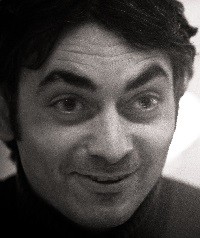 Prof Stefano Pirandola is a world-leading expert in quantum networking and security, with more than 180 publications and thousands of citations. Before becoming Professor at the University of York (UK), he won prestigious academic fellowships and worked as a researcher at MIT in 2007-10, where he developed fundamental blocks for quantum communication networks. He has been one of the main scientists behind the development of continuous-variable quantum information, a more advanced setting that enables the creation of quantum protocols with much higher rates. Among other contributions, he discovered the ultimate capacities for quantum communication over quantum channels, he introduced the first end-to-end protocol for quantum key distribution, and developed rigorous security proofs for fiber-based, free-space, and satellite quantum communications. He pioneered the hybrid model of quantum internet and contributed to developing more advanced protocols for quantum teleportation and entanglement distribution. You can follow him on Twitter @SPirandola and LinkedIn https://www.linkedin.com/in/stefano-pirandola-2aa7841b2/.
Prof Stefano Pirandola is a world-leading expert in quantum networking and security, with more than 180 publications and thousands of citations. Before becoming Professor at the University of York (UK), he won prestigious academic fellowships and worked as a researcher at MIT in 2007-10, where he developed fundamental blocks for quantum communication networks. He has been one of the main scientists behind the development of continuous-variable quantum information, a more advanced setting that enables the creation of quantum protocols with much higher rates. Among other contributions, he discovered the ultimate capacities for quantum communication over quantum channels, he introduced the first end-to-end protocol for quantum key distribution, and developed rigorous security proofs for fiber-based, free-space, and satellite quantum communications. He pioneered the hybrid model of quantum internet and contributed to developing more advanced protocols for quantum teleportation and entanglement distribution. You can follow him on Twitter @SPirandola and LinkedIn https://www.linkedin.com/in/stefano-pirandola-2aa7841b2/.
Xiaosong Ma
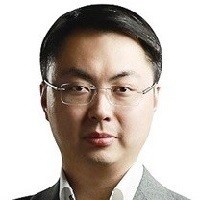 Professor Xiao-Song Ma joined the School of Physics at Nanjing University in 2015. He obtained his B.S. from Nanjing University in 2003, M.S. from Leiden University in 2005 and Ph.D. in Physics at University of Vienna in 2010. He was a postdoc fellow in the Institute of Quantum Optics and Quantum Information in Vienna from 2010 to 2012, and a Marie Curie fellow in Yale University from 2012 to 2015. His research area covers long-distance quantum communication, experimental investigations on the foundation of quantum physics and integrated photonics for quantum-enhanced technology. More info is available in his research group website: https://qoqi.nju.edu.cn
Professor Xiao-Song Ma joined the School of Physics at Nanjing University in 2015. He obtained his B.S. from Nanjing University in 2003, M.S. from Leiden University in 2005 and Ph.D. in Physics at University of Vienna in 2010. He was a postdoc fellow in the Institute of Quantum Optics and Quantum Information in Vienna from 2010 to 2012, and a Marie Curie fellow in Yale University from 2012 to 2015. His research area covers long-distance quantum communication, experimental investigations on the foundation of quantum physics and integrated photonics for quantum-enhanced technology. More info is available in his research group website: https://qoqi.nju.edu.cn
Davide Bacco
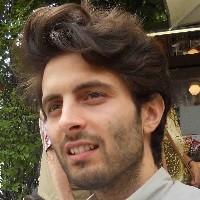 Davide Bacco is an Assistant Professor (tenure-track) at the Department of Physics and Astronomy of the University of Florence and co-founder of QTI s.r.l., the first Italian startup developing and commercializing quantum communication systems. He received his master's degree in Engineering Telecommunication in 2011 at the University of Padova, Italy. In 2015 he finished his Ph.D. degree in Science Technology and Spatial Measures (CISAS) at the University of Padova. He has been working at the Department of Electronics and Photonics Engineering at the Technical University of Denmark (DTU) for the last 7 years. He and his team have heavily contributed to the field of quantum communication and silicon quantum photonics, pioneering the idea of multidimensional quantum states and multicore fibers for quantum information processing. More in general, his research interests regard quantum communications, quantum cryptography, and integrated photonics for quantum communications. He is currently involved as Principal Investigator (PI) and Co-PIs of several Italian, Danish, and European projects, including a European Research Council ERC-StG one. You can follow him on Twitter @dabacco23 and LinkedIn https://www.linkedin.com/in/davide-bacco-76b3788a/.
Davide Bacco is an Assistant Professor (tenure-track) at the Department of Physics and Astronomy of the University of Florence and co-founder of QTI s.r.l., the first Italian startup developing and commercializing quantum communication systems. He received his master's degree in Engineering Telecommunication in 2011 at the University of Padova, Italy. In 2015 he finished his Ph.D. degree in Science Technology and Spatial Measures (CISAS) at the University of Padova. He has been working at the Department of Electronics and Photonics Engineering at the Technical University of Denmark (DTU) for the last 7 years. He and his team have heavily contributed to the field of quantum communication and silicon quantum photonics, pioneering the idea of multidimensional quantum states and multicore fibers for quantum information processing. More in general, his research interests regard quantum communications, quantum cryptography, and integrated photonics for quantum communications. He is currently involved as Principal Investigator (PI) and Co-PIs of several Italian, Danish, and European projects, including a European Research Council ERC-StG one. You can follow him on Twitter @dabacco23 and LinkedIn https://www.linkedin.com/in/davide-bacco-76b3788a/.
When asked about our journal, Dr Bacco says, “npj Quantum Information rapidly became an important journal for the entire quantum community. In addition, the fact that it is an open-access journal gives the possibility to everyone to learn about quantum technologies, which is a fundamental point today. In addition, the review process in npj Quantum Information is always timely, specific, and rigorous which is fundamental for creating space for dialogue among the community.”
Howard Wiseman
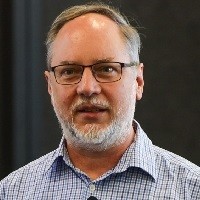 Prof. Howard Wiseman is a theoretical quantum physicist at Griffith University in Queensland, Australia. Following his PhD (1992-4) with Gerard Milburn at the University of Queensland, he did a Postdoc at the University of Auckland with Dan Walls FRS, before returning to UQ with an Australian Research Council (ARC) Postdoctoral Fellowship. He moved to Griffith University as an ARC QEII Fellow in 1999, and gained an ARC Federation Fellowship in 2004. He has been Director of the Centre for Quantum Dynamics there since 2007. He has been elected a Fellow of the Australian Academy of Science, the American Physical Society, and the Optical Society of America (Optica), and has won several national medals and prizes in Australia for his physics research. Since 2011 he has been an Executive Node Manager of the Centre for Quantum Computation and Communication Technology, an ARC Centre of Excellence. Howard has published over 250 refereed journal papers or book chapters. He has also written five popular pieces on quantum physics for The Conversation website which have been accessed almost a million times. Howard is probably best known for his pioneering work on continuous quantum measurement theory and its application in quantum feedback control, as well as for his seminal contributions in adaptive quantum measurements. In 2010, Cambridge published Quantum Measurement and Control, the first comprehensive text on this topic, which he co-authored with Milburn. He has also become well known for his 2007 reformulation of the phenomenon of steering, introduced by Schrödinger following the Einstein-Podolsky-Rosen paradox, as a quantum information task, with application in entanglement verification. As well as continuing these research themes, Howard works in quantum foundations, ultimate quantum limits to laser coherence, noise mitigation in quantum computing, quantum entanglement distribution, quantum state smoothing, and other topics in quantum measurement and quantum information.
Prof. Howard Wiseman is a theoretical quantum physicist at Griffith University in Queensland, Australia. Following his PhD (1992-4) with Gerard Milburn at the University of Queensland, he did a Postdoc at the University of Auckland with Dan Walls FRS, before returning to UQ with an Australian Research Council (ARC) Postdoctoral Fellowship. He moved to Griffith University as an ARC QEII Fellow in 1999, and gained an ARC Federation Fellowship in 2004. He has been Director of the Centre for Quantum Dynamics there since 2007. He has been elected a Fellow of the Australian Academy of Science, the American Physical Society, and the Optical Society of America (Optica), and has won several national medals and prizes in Australia for his physics research. Since 2011 he has been an Executive Node Manager of the Centre for Quantum Computation and Communication Technology, an ARC Centre of Excellence. Howard has published over 250 refereed journal papers or book chapters. He has also written five popular pieces on quantum physics for The Conversation website which have been accessed almost a million times. Howard is probably best known for his pioneering work on continuous quantum measurement theory and its application in quantum feedback control, as well as for his seminal contributions in adaptive quantum measurements. In 2010, Cambridge published Quantum Measurement and Control, the first comprehensive text on this topic, which he co-authored with Milburn. He has also become well known for his 2007 reformulation of the phenomenon of steering, introduced by Schrödinger following the Einstein-Podolsky-Rosen paradox, as a quantum information task, with application in entanglement verification. As well as continuing these research themes, Howard works in quantum foundations, ultimate quantum limits to laser coherence, noise mitigation in quantum computing, quantum entanglement distribution, quantum state smoothing, and other topics in quantum measurement and quantum information.
More information is available on the website of his research group: https://www.griffith.edu.au/centre-quantum-dynamics and his personal web page: https://howardwiseman.me/
Regarding npj Quantum Information, Professor Wiseman said “The journal is very valuable to the community as a publisher of innovative and important work in this rapidly expanding field.”
Guido Burkard
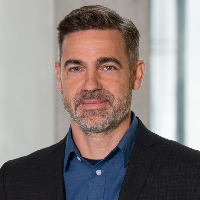 Guido Burkard is a professor of theoretical physics at the University of Konstanz. His research focuses on the physics of quantum computing, specifically on physical systems that can efficiently store, process, and transmit quantum information. His main research focus lies on solid-state and hybrid quantum systems. Burkard's research has been published in Nature, Science and Physical Review Letters, among others. After obtaining his PhD in physics from the University of Basel, Burkard worked at the IBM T. J. Watson Research Center as a postdoctoral researcher before becoming a faculty member at the University of Basel, RWTH Aachen University, and finally the University of Konstanz. More info available can be found on Burkard group webpage: https://www.burkard.uni-konstanz.de/
Guido Burkard is a professor of theoretical physics at the University of Konstanz. His research focuses on the physics of quantum computing, specifically on physical systems that can efficiently store, process, and transmit quantum information. His main research focus lies on solid-state and hybrid quantum systems. Burkard's research has been published in Nature, Science and Physical Review Letters, among others. After obtaining his PhD in physics from the University of Basel, Burkard worked at the IBM T. J. Watson Research Center as a postdoctoral researcher before becoming a faculty member at the University of Basel, RWTH Aachen University, and finally the University of Konstanz. More info available can be found on Burkard group webpage: https://www.burkard.uni-konstanz.de/
Petros Wallden
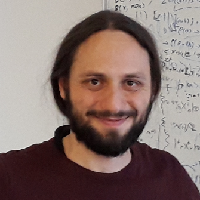 Petros Wallden is a Lecturer in the School of Informatics at the University of Edinburgh. He holds a Masters degree in Mathematics from University of Cambridge and a PhD in Physics from Imperial College. His research spans a wide range of topics in Quantum Informatics, including quantum algorithms, verification and benchmarking of quantum computing, quantum cyber security, and foundations of quantum informatics.
Petros Wallden is a Lecturer in the School of Informatics at the University of Edinburgh. He holds a Masters degree in Mathematics from University of Cambridge and a PhD in Physics from Imperial College. His research spans a wide range of topics in Quantum Informatics, including quantum algorithms, verification and benchmarking of quantum computing, quantum cyber security, and foundations of quantum informatics.
When asked about peer review, Dr. Wallden says, “Rigorous and thorough peer reviewing is essential to maintain the quality of published research, progress science and protect the credibility of the respective field. The latter has a wider impact as it affects the way that science is viewed by the public. Reviewing itself can be satisfying: (i) one delves into greater depth than they would otherwise; (ii) one returns and contributes to the scientific community – I strongly believe that publishing should be a community-based process that is done for the greater good.”
